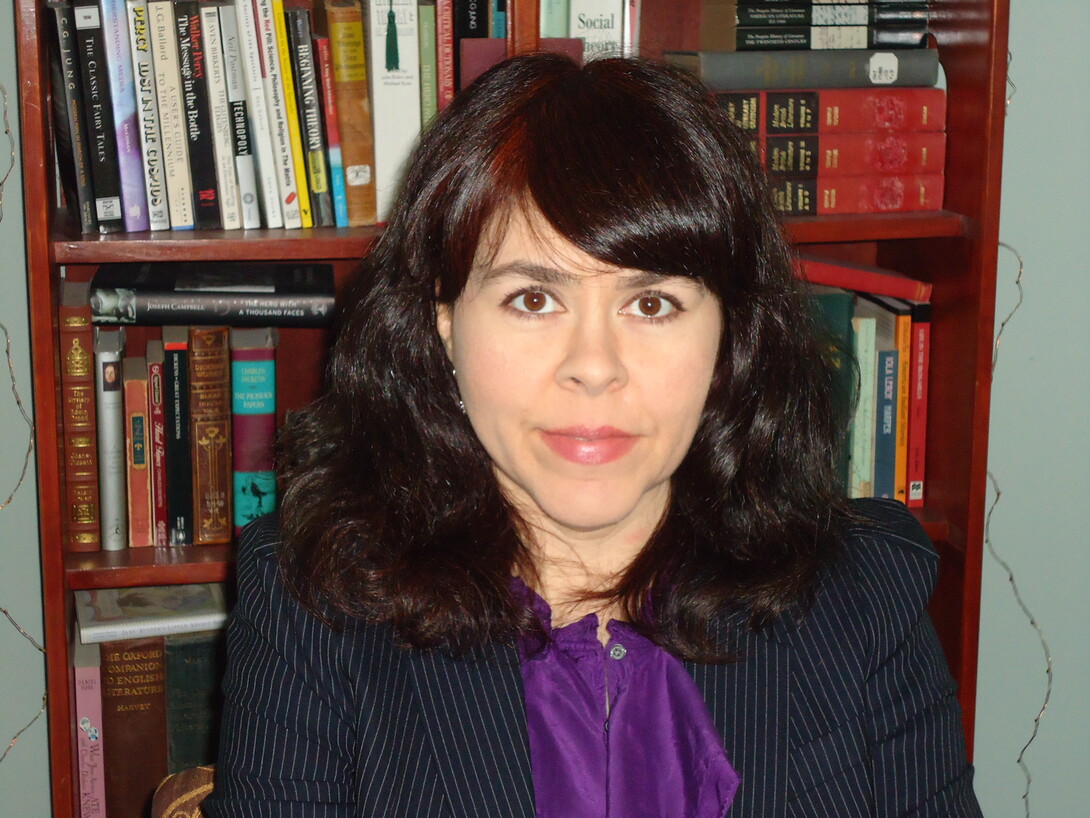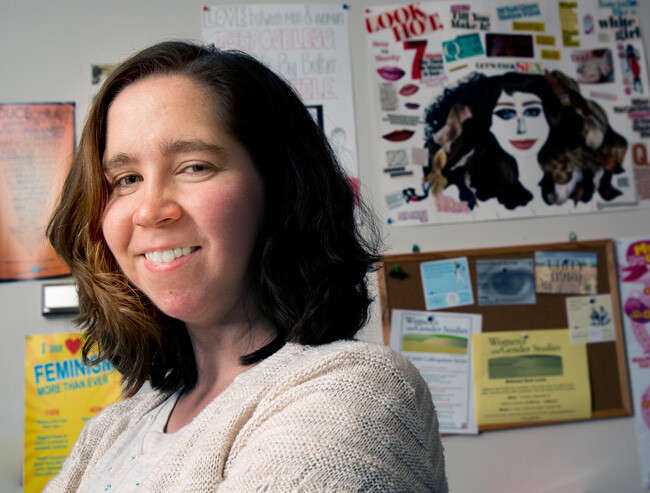
Aldous Huxley, George Orwell and … Suzanne Collins?
“The Hunger Games,” Collins’ bestselling dystopian trilogy about a teenaged girl chosen to represent her home in a televised fight to the death, clearly is a cultural phenomenon. The third movie of the series, “The Hunger Games: Mockingjay Part 1,” set for release Nov. 21, is said by some observers to be the most anticipated movie this fall.
But is “The Hunger Games” literature worthy of academic study?
Kathleen Lacey and Pascha Stevenson, lecturers in UNL’s Department of English, are among a growing number of academics across the country who think so.
“I think the ideas in ‘The Hunger Games’ are profound, complex and substantive,” Stevenson said. In the study of popular culture, she added, “it’s not only what the books say, it’s that the books exist. It could be stronger, it could be richer, but the fact that it’s resonated with so many people is not something to ignore.”
Stevenson teaches “Mockingjay,” the third novel in Collins’ series, alongside Huxley and Orwell in her 300-level honors seminar on speculative fiction. She and Lacey cite the book’s protagonist, Katniss Everdeen, as a compelling – and fairly rare – example of the warrior-girl archetype in literature and popular culture.
They say Collins’ books present important questions about the juxtaposition of violence and entertainment in popular culture, as well as the value of human life and what it means to be free.
Lacey included “The Hunger Games” in her 300-level Women in Popular Culture online course this fall. She began incorporating Collins’ work into her classes in 2012, while Stevenson has included it for a year and a half.
Along with her Women in Pop Culture course, Lacey has taught “The Hunger Games” in a 400-level special topics class on Girls Studies. Stevenson has included it in courses focusing on young adult literature and children’s literature as well as her speculative fiction class.
Lacey has presented papers on “The Hunger Games” at the Southwest Popular/American Culture Association conference, held annually in Albuquerque, N.M. The conference draws about 1,000 scholars from across the country to discuss popular topics as diverse as J.R.R. Tolkien’s work, the Grateful Dead, game studies and neo-Victorianism and steampunk.
Last year’s conference included four panels studying “The Hunger Games.” One discussed using the popular series in a remedial first-year writing class; others examined the novels’ gender roles, literary influences and themes of capitalism and competition.
Lacey has identified about two dozen other universities where faculty uses “The Hunger Games” in their curriculum. Others include a first-year literature and culture class at the University of Illinois at Chicago, a political science class at Indiana University Southeast and a philosophy class at McHenry County College in Illinois.
The Women in Popular Culture course taught by Lacey fills its 30-seat capacity quickly. Lacey said she often is asked to let additional students register for the class, but is unwilling to let the class grow beyond 32 students.
The course is popular in part because it’s cross-listed as both English and Women’s Studies and because it fulfills a UNL general education requirement for knowledge of human diversity. Most of Lacey’s students major in subjects other than English or gender studies, she said.
“The Hunger Games” is a good vehicle to examine how girls are portrayed in popular culture, said Lacey, who specializes on girlhood in literature.
“A lot of students read them when they were young, so they remember what it was like to really fall in love with those books and why they did,” she said. “It really helps encourage that discussion of why girls are attracted to it.”









